
Anthony George Banks is an English musician, songwriter and film composer primarily known as the keyboardist and founding member of the rock band Genesis. Banks is also a prolific solo artist, releasing six solo albums that range through progressive rock, pop, and classical music.
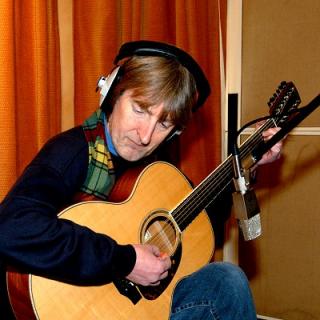
Anthony Edwin Phillips is an English musician, songwriter, producer and singer who gained prominence as the original lead guitarist of the rock band Genesis, from 1967 to 1970. After Phillips recorded From Genesis to Revelation and Trespass with the band, he left in July 1970 and learned to play more instruments, before he began a solo career.
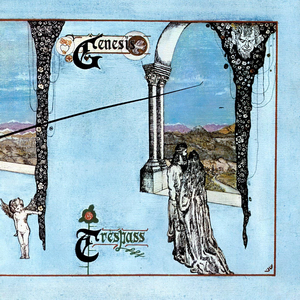
Trespass is the second studio album by the English rock band Genesis. It was released in October 1970 on Charisma Records, and is their last album with guitarist Anthony Phillips and their only one with drummer John Mayhew.
Peter Cross is a British illustrator. His style features lifelike drawings of British wildlife, in cartoon-like situations. Ostensibly produced for children, they include sufficient visual puns to be of interest to adults. He first worked as a technical illustrator for Hawker Siddeley and also illustrated album sleeves, not least for guitarist Anthony Phillips and over 200 designs in the popular Harbottle Hamster range of greetings cards for Gordon Fraser.

Private Parts and Pieces VI: Ivory Moon is the eleventh studio album by English multi-instrumentalist and composer Anthony Phillips. It was released in January 1986 by Passport Records in the United States and Canada as the sixth instalment in his Private Parts & Pieces album series featuring tracks that were not included on his full studio releases. Ivory Moon features solely piano pieces written between 1971 and 1985, and recorded in August 1985. It is Phillips's first album that does not feature his guitar work.

1984 is the sixth studio album by English musician and composer Anthony Phillips, released in June 1981 on RCA Records. The album marks a change in musical style for Phillips as it is synthesiser-oriented compared to most of his previous albums which focused on more folk and acoustic music. After the music had been recorded, Phillips named the album after George Orwell's dystopian novel Nineteen Eighty-Four (1949).
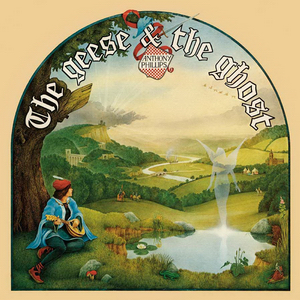
The Geese & the Ghost is the first studio album by English musician and songwriter Anthony Phillips, released in March 1977 on Hit & Run Music in the United Kingdom and Passport Records in the United States. It was originally intended to be an album by Phillips and his former Genesis bandmate Mike Rutherford, but Rutherford's difficulty in devoting time to the project ended the idea. The album reached number 191 on the Billboard 200.
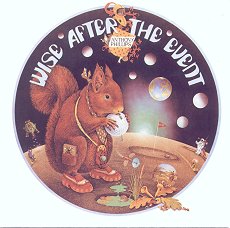
Wise After the Event is the second studio album by English musician and composer Anthony Phillips, released in May 1978 on Arista Records in the United Kingdom and in June 1978 on Passport Records in the United States. After promoting his previous album The Geese & the Ghost (1977), Phillips began to prepare material for a new album. It remains his only album that features himself on lead vocals on each track.

Sides is the fourth studio album by English musician and composer Anthony Phillips. It was released in April 1979 by Arista Records in the United Kingdom and in June 1979 on Passport Records in the United States. After completing Private Parts & Pieces (1978), an album of home recordings that Phillips had recorded years before but remained unreleased, Phillips returned to making a commercial record. The UK release saw the first 5,000 copies of Sides packaged with a Collectors Album edition of Private Parts & Pieces.
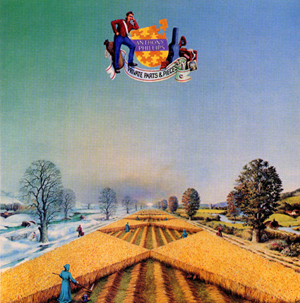
Private Parts & Pieces is the third studio album by English musician and composer Anthony Phillips. It was released in November 1978 by Passport Records in the United States, and in April 1979 by Arista Records in the United Kingdom. Unlike his previous two releases, the album is a collection of demos, out-takes, and previously unreleased material rather than an explicit attempt at a commercial album.

Private Parts & Pieces II: Back to the Pavilion is the fifth studio album by English musician and composer Anthony Phillips, released in April 1980 on Passport Records in the United States and Canada. It is the second instalment in his Private Parts & Pieces album series of previously recorded pieces that had been parts of or intended for other projects. Back to the Pavilion includes tracks recorded for Wise After the Event (1978), music during his time as a member of Genesis, and those commissioned as part of an aborted project to set Macbeth to music. It features musical contributions from Andy McCulloch and his former Genesis bandmate Mike Rutherford.
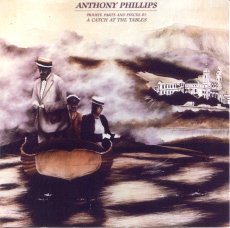
Private Parts and Pieces IV: A Catch at the Tables is the ninth studio album by English multi-instrumentalist and composer Anthony Phillips. It was released in April 1984 by Passport Records as the fourth instalment to his generic album series, Private Parts & Pieces. A release in the United Kingdom followed in 1990 by Virgin Records.
"It's No Game" is a song written by English musician David Bowie for his 1980 album Scary Monsters , featuring lead guitar played by Robert Fripp. The song is split into two parts, opening and closing the album. "(No. 1)" is musically sinister, featuring Bowie screaming lyrics and Japanese narration provided by actress Michi Hirota. "(No. 2)", a stark contrast to "(No. 1)", is much calmer, which Bowie's biographers symbolise as Bowie facing the same situation in "(No. 1)", but after the album's duration.

Field Day is a studio double album by English multi-instrumentalist and composer Anthony Phillips, released in October 2005 by Blueprint Records.
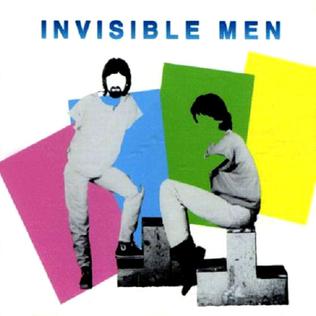
Invisible Men is the eighth studio album by English multi-instrumentalist and composer Anthony Phillips. It was released in October 1983 by Passport Records in the United States and in April 1984 by Street Tunes in the United Kingdom. After he released his Private Parts & Pieces III: Antiques, the third instalment in his generic album series, Phillips started work on his next full studio album. Phillips was pressured by his US label Passport Records to deliver more radio friendly songs, and produced Invisible Men as a collaborative effort with musician and songwriter Richard Scott.

Archive Collection Volume II is the second vault release from Anthony Phillips, following Archive Collection Volume I in 1998. Compiled by Anthony Phillips and Jonathan Dann, it is a 2 CD selection of previously unreleased pieces and variations recorded from 1971 to 1988.

Private Parts & Pieces III: Antiques is the seventh studio album by English multi-instrumentalist and composer Anthony Phillips. It was released in March 1982 by Passport Records in the United States and in October 1982 by RCA International in the United Kingdom as the third instalment to his Private Parts & Pieces album series. After releasing his full studio album 1984 (1981), Phillips entered a collaboration with Argentine musician Enrique Berro Garcia who he first met in 1978.

The Divertimento for Chamber Orchestra after Keyboard Pieces by Couperin, Op. 86 is an orchestral suite composed by Richard Strauss published in 1942 which consists of eight movements, each one based on a selection of pieces from François Couperin's Pièces de Clavecin written for the solo harpsichord over the period 1713 to 1730.

Slow Dance is a studio album by English musician and songwriter Anthony Phillips, released in September 1990 on Virgin Records. It is a 50-minute instrumental suite divided into two parts. The music was composed by Phillips and performed by himself with additional musicians.

Private Parts & Pieces VII: Slow Waves, Soft Stars is the twelfth studio album by English multi-instrumentalist and composer Anthony Phillips. It was released in August 1987 in the United States by Audion Recording as the seventh instalment in his Private Parts & Pieces album series. The album sees Phillips explore ambient and new-age music with synthesisers and guitars.


















